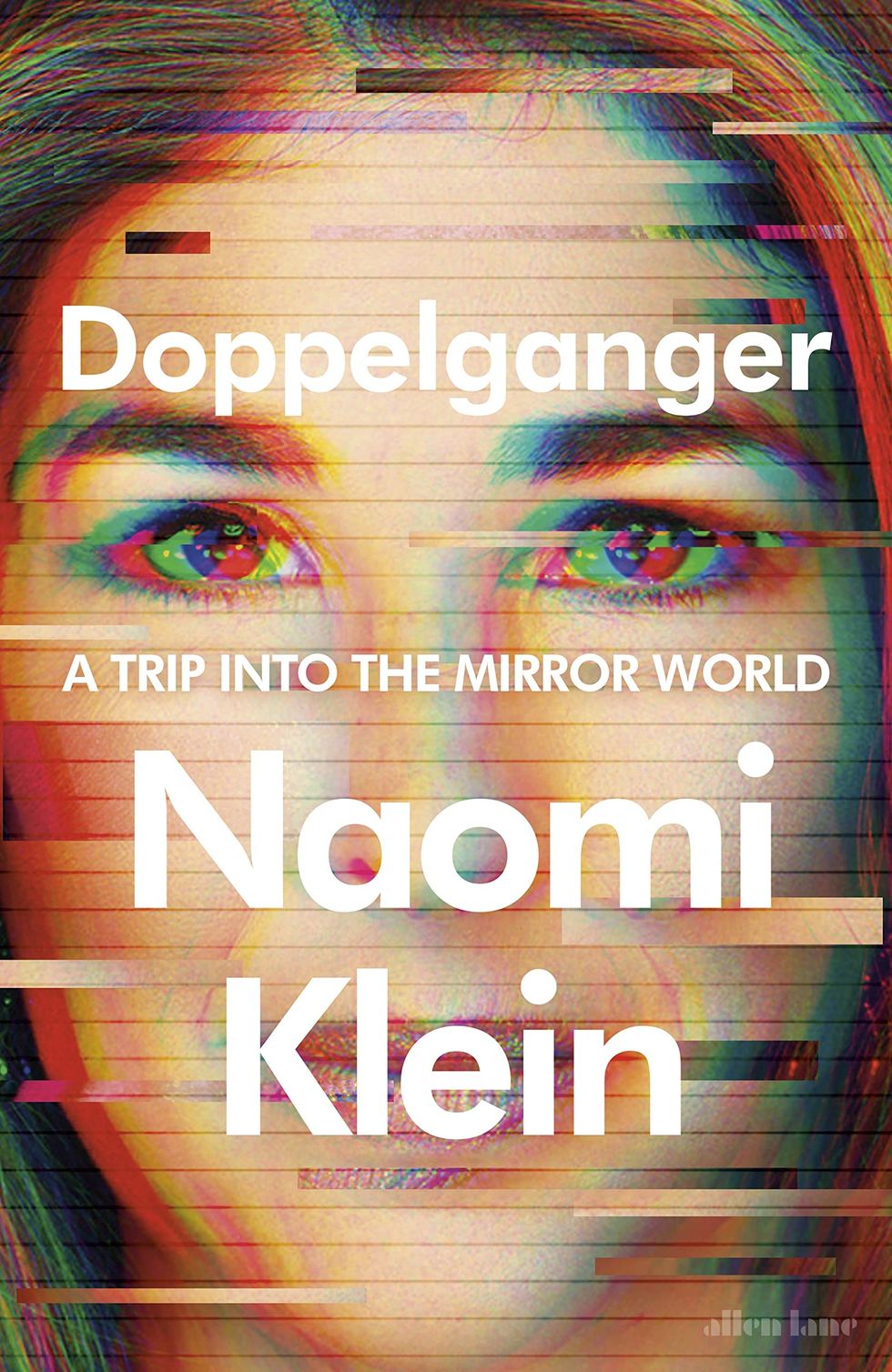‘If you're telling people, “This is a battle for good and evil, light versus dark”, which is a big part of the discourse within conspiracy land, it shouldn’t be surprising that some people believe it and act on it,’ says Naomi Klein. One of the world’s most respected investigative journalists is chatting to me from her home in rural Canada about her latest book, Doppelganger: A Trip Into the Mirror World.
Since publishing her first, the anti-capitalist bible No Logo in 1999, she has become known for holding governments and the corporate elite to account. The book was an almost-instant success, selling millions and turning Klein, then only 29, into an icon of the political left. Klein describes her nine critically acclaimed books as ‘attempts to map the political moment’. With No Logo, she captured the anti-corporate sentiments driving so many turn-of-the century youth movements; her 2007 book The Shock Doctrine – which explored the rise of so-called disaster capitalism – led to Klein being anointed ‘the most visible and influential figure on the American left’ by the The New Yorker.
Doppelganger is part memoir, part investigation into the rise of far-right conspiracy culture. With the shadow of Donald Trump looming larger than ever over American politics, it feels like necessary reading for anyone wondering how we got here but – as I put to her – a brave move, given the violence endemic to the circles that Klein sets out to investigate.
‘Yes, but I don’t think that’s a reason to go silent,’ she says quietly. Klein is calm, softly spoken and supremely reserved as we talk over Zoom. ‘The apocalyptic language that’s absolutely rampant in conspiracy culture means that a lot of people are very close to breaking point. So whether or not somebody is consciously trying to incite violence, we have more evidence every day that people take it into their own hands. I’m not going to go mute because of that. What I will say is that I take it seriously and I take precautions.’
In Doppelganger, Klein weaves her own personal experiences into the reporting and analysis for the first time. She writes about her son’s autism and the quest to find him proper care, and about her husband running for local office. ‘This was a very different book for me, in many ways,’ says Klein. ‘I did this with a writing coach, somebody working with me to try to access a different kind of voice – one that was more creative, playful and non-traditional to non-fiction. I kind of put myself back into writing school. I even rented a cabin even deeper in the woods than where I live.’
The book centres on her experience of having a ‘doppelganger’ – someone who is similar enough to her that they are often mistaken for one another – whose politics are diametrically opposed to everything that Klein stands for. That doppelganger is Naomi Wolf, once a left-wing feminist theorist (the book she wrote in 1990, The Beauty Myth, was widely celebrated as a seminal work of third-wave feminism) but who, since the pandemic, has become a leading voice of the conspiratorial right.
‘It’s a bizarre experience when people in the world are perceiving somebody to be you who isn’t you. It’s challenging to your sense of self and your ego,’ Klein says.
She realised it would be a great metaphor through which to explore the obscurity of this post-truth moment. ‘That uncanny feeling cropped up again and again. For instance, I find social media to be increasingly uncanny; I don’t know who or what is real. Is your online avatar you? Or is it some product that you created that is being perceived as you by the rest of the world? We’re experiencing uncanny weather because of the climate crisis; it’s no longer familiar, it’s temperatures that don’t belong...’
When it became apparent that Wolf would be part of the narrative, Klein approached her for interviews but never heard back. ‘I hope that she reads the book and I hope that she will be relieved that it isn’t just some big hatchet job,’ says Klein. In fact, one of the most compelling things about Doppelganger is that Klein approaches conspiracies and conspiracy theorists with curiosity, rather than outrage.
‘As I say in the book, conspiracy theorists often get the facts wrong, but the feelings right. And there’s often a little bit of truth that gets mixed in with the lies and the fantasy. There’s good reason to be suspicious of Big Pharma and Big Tech, for instance. I think the fears expressed in conspiratorial thinking are a manifestation of a very unequal society,’ she explains. Her hope for the way forward? A path out of this ‘disorientation’ of post-truth.















